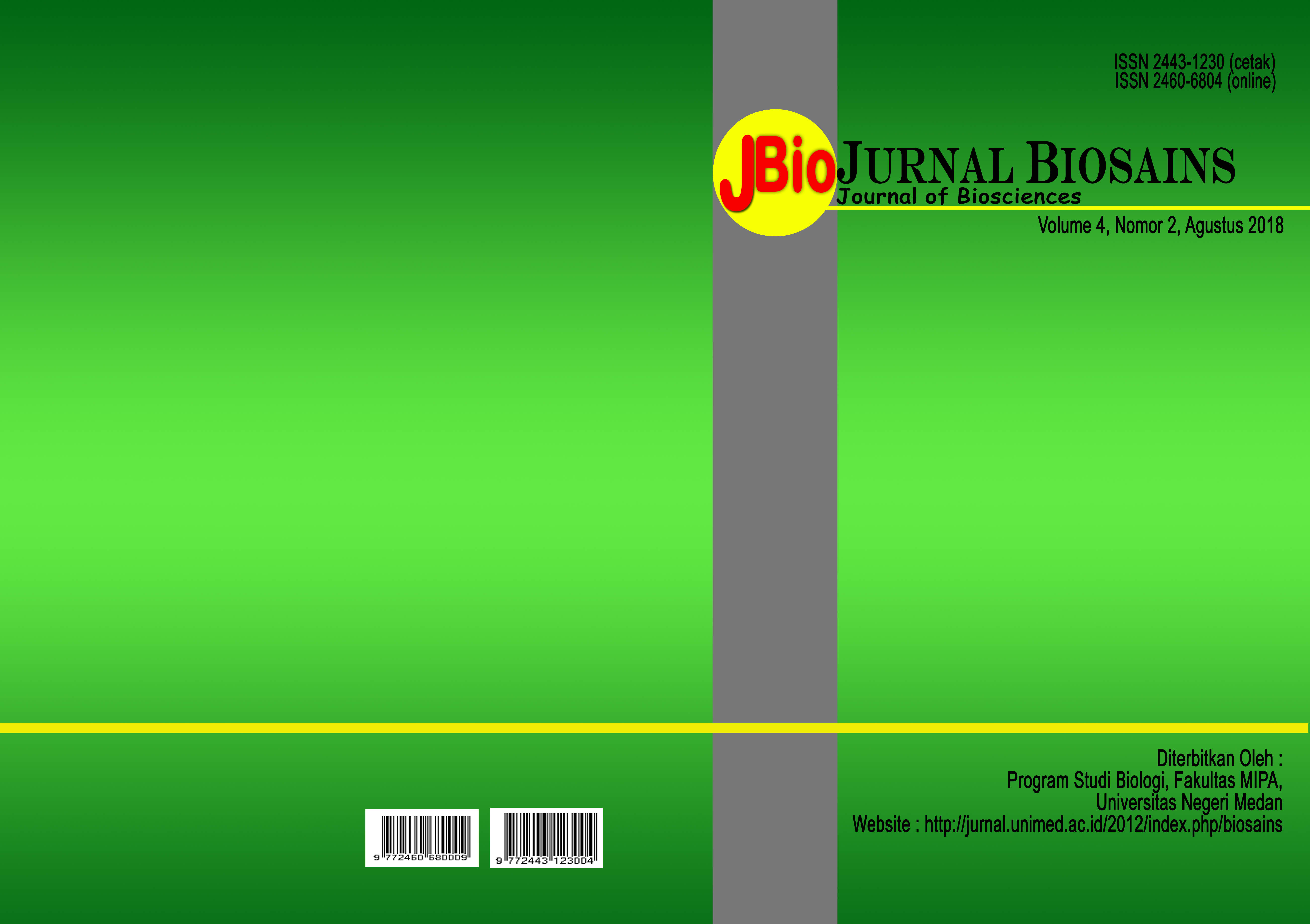TUMBUHAN OBAT DAN KEARIFAN LOKAL MASYARAKAT DI SEKITAR KAWASAN TNBG, DESA SIBANGGOR JULU, KABUPATEN MANDAILING NATAL
DOI:
https://doi.org/10.24114/jbio.v4i2.10295Keywords:
Local wisdom, Medicinal Plants, TNBG, Sibanggor Julu.Abstract
This study was conducted from April until June 2017 which aims to reveal the local wisdom in the utilization of medicinal plants by villagers of Sibanggor Julu, Mandailing Natal Regency. This study uses eksplorative survey method and Participatory Rural Appraisal method. Data were collected through semi-structure interviews with 37 infomants.based on the results of the interview can be seen that the community still believes with traditional medicine in life where obtained data that there are 31 types of medicinal plants classified into 2 classes are Monocotyledoneae with 5 families and Dicotyledoneae with 12 families. Zingiberaceae is the most dominant family in the utilization as medicinal plants and Kunyit or Curcuma longa L. is the type most widely used by villagers of Sibanggor Julu to treat the disease. Leaf was dominantly used as medicine by 39% and in the way of processing of medicinal plants is generally boiled by 28 %.Downloads
Published
Issue
Section
License
Copyright (c) 2018 Dwi Ratna Anjaning Kusuma Marpaung

This work is licensed under a Creative Commons Attribution 4.0 International License.
For Authors Jurnal Biosains agree to the following terms:
Authors retain copyright and grant the Jurnal Biosains (JBIO) right of first publication with the work simultaneously licensed under a Creative Commons Attribution License (CC BY-SA 4.0) that allows others to share (copy and redistribute the material in any medium or format) and adapt (remix, transform, and build upon the material) the work for any purpose, even commercially with an acknowledgement of the work's authorship and initial publication in JBIO (Jurnal Biosains)
Authors are able to enter into separate, additional contractual arrangements for the non-exclusive distribution of the journal's published version of the work (e.g., post it to an institutional repository or publish it in a book), with an acknowledgement of its initial publication in JBIO (Jurnal Biosains)
Authors are permitted and encouraged to post their work online (e.g., in institutional repositories or on their website) prior to and during the submission process, as it can lead to productive exchanges, as well as earlier and greater citation of published work (See The Effect of Open Access).


